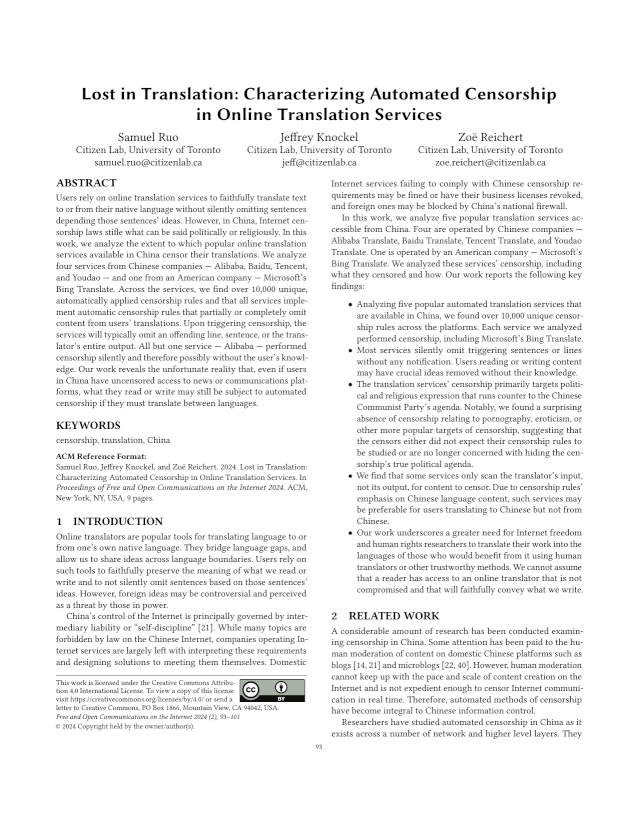Lost in Translation: Characterizing Automated Censorship in Online Translation Services
Authors: Samuel Ruo (Citizen Lab, University of Toronto), Jeffrey Knockel (Citizen Lab, University of Toronto), Zoë Reichert (Citizen Lab, University of Toronto)
Year: 2024
Issue: 2
Pages: 93–101
Abstract: Users rely on online translation services to faithfully translate text to or from their native language without silently omitting sentences depending those sentences’ ideas. However, in China, Internet censorship laws stifle what can be said politically or religiously. In this work, we analyze the extent to which popular online translation services available in China censor their translations. We analyze four services from Chinese companies — Alibaba, Baidu, Tencent, and Youdao — and one from an American company — Microsoft’s Bing Translate. Across the services, we find over 10,000 unique, automatically applied censorship rules and that all services implement automatic censorship rules that partially or completely omit content from users’ translations. Upon triggering censorship, the services will typically omit an offending line, sentence, or the translator’s entire output. All but one service — Alibaba — performed censorship silently and therefore possibly without the user’s knowledge. Our work reveals the unfortunate reality that, even if users in China have uncensored access to news or communications platforms, what they read or write may still be subject to automated censorship if they must translate between languages.
Copyright in FOCI articles are held by their authors. This article is published under a Creative Commons Attribution 4.0 license.

